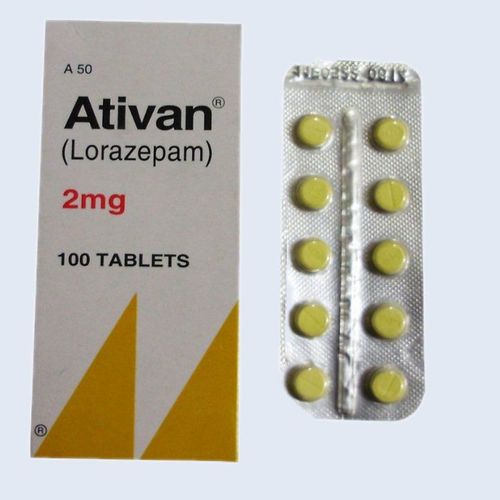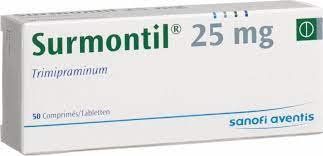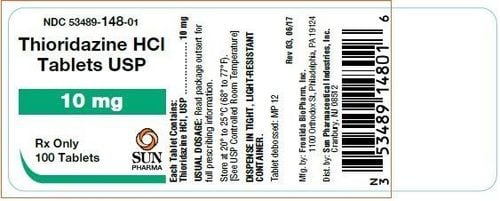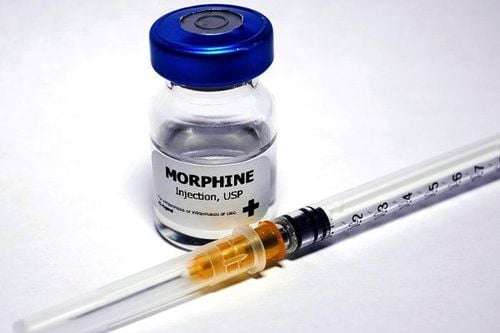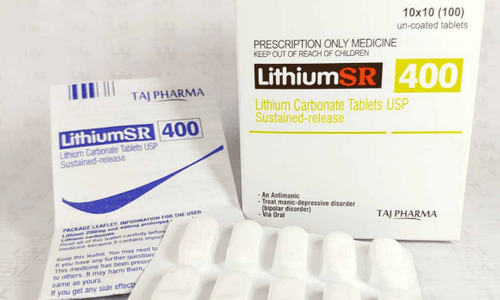This is an automatically translated article.
Geodon is approved by the U.S. Food and Drug Administration (FDA) for the treatment of schizophrenia as well as acute mania and certain mixed states associated with bipolar disorder. Patients need to have complete information about the drug to avoid dangerous complications.1. What does Geodon do?
According to information from the licensed manufacturer, Geodon is used to treat certain mental/emotional disorders such as schizophrenia and bipolar disorder. Geodon helps to reduce hallucinations, help you think more clearly and positively about yourself, feel less agitated, and have a better outlook on everyday life. Geodon belongs to the group of atypical antipsychotics, which work by helping to restore the balance of certain natural substances in the brain.2. Instructions for using the drug Geodon
You need to carefully read the instructions of your doctor before you start using Geodon. Typically, Geodon is tolerated orally, swallowed whole, after meals as directed by your doctor, usually twice daily.The dose of Geodon is based on your medical condition and response to treatment. To reduce your risk of side effects, your doctor may direct you to start this medication at a low dose and gradually increase the dose over time.
In order to maintain a stable frequency to get the most benefit from Geodon, you should set a fixed time of day to avoid missed doses. Patients are advised to continue taking the medicine even if they feel well. Do not stop taking it without consulting your doctor.
Before taking Geodon, tell your doctor if you:
Are allergic to the drug or have any other allergies. Your medical history, especially of: dementia, seizures, low white blood cell count, trouble swallowing, heart disease (such as coronary heart disease, irregular heartbeat), diabetes (including family history) ), obesity, difficulty breathing during sleep (sleep apnea).
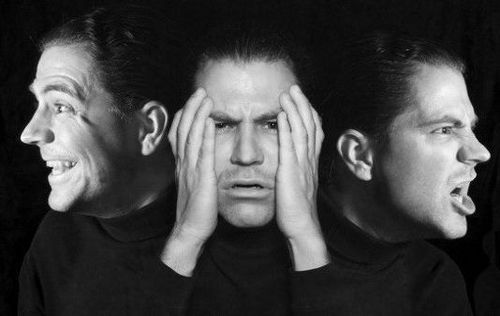
Thuốc Geodon được sử dụng để điều trị một số chứng bệnh rối loạn tâm thần/cảm xúc như tâm thần phân liệt, rối loạn lưỡng cực
3. Geodon drug side effects
Not all Geodon users experience side effects. Therefore, contact your doctor if you experience any unusual changes, such as:Drowsiness, dizziness, lightheadedness, weakness, nausea, vomiting, runny nose and cough. Dizziness and lightheadedness can increase your risk of falling. Stand up slowly when getting up from a sitting or lying position. Difficulty swallowing, muscle spasms, shaking (tremor), mental/emotional changes (such as restlessness), vision changes, breathing interruptions during sleep. Geodon rarely causes your blood sugar to rise, which can cause or worsen diabetes. Talk to your doctor if you have symptoms of high blood sugar, such as increased thirst or increased urination. Severe dizziness, fainting, convulsions, signs of liver damage (such as persistent nausea/vomiting, loss of appetite, stomach/abdominal pain, yellowing eyes/skin) Allergic symptoms: Fever, swollen lymph nodes blood, rash, itching/swelling (especially of the face/tongue/throat), severe dizziness, trouble breathing. Geodon also rarely causes significant weight gain and increases in cholesterol (or triglycerides) levels in your blood. These effects, along with diabetes, can increase your risk of developing heart disease.
A rare side effect of Geodon may be tardive dyskinesia. Tell your doctor right away if you develop any unusual/uncontrollable movements (especially of the face, mouth, tongue, arms, or legs).
Geodon may increase a certain natural substance (prolactin) made by your body. For women, this increase in prolactin can lead to abnormal breast milk formation, missed/stopped periods, or difficulty getting pregnant. For men, there may be decreased libido, inability to produce sperm, or enlarged breasts. If you develop any of these symptoms, tell your doctor right away.
This medicine can rarely cause a very serious condition called neuroleptic malignant syndrome (NMS). Get medical help right away if you have any of the following symptoms: fever, muscle stiffness/pain/softness/weakness, severe fatigue, severe confusion, sweating, fast/irregular heartbeat , dark urine, signs of kidney problems (such as change in the amount of urine).
Rarely men may experience pain or an erection lasting 4 hours or more. If this happens, stop using this medicine and get medical help right away, otherwise it may lead to chronic complications.
Geodon may make you dizzy or drowsy. Therefore, do not drive, use machines, or do anything that requires sobriety until you can do it safely, avoiding alcoholic beverages.
Geodon can make you sweat less, making you more susceptible to heat stroke. So avoid doing things that can cause you to overheat, such as working out or exercising in hot weather, using a hot tub. When the weather is hot, you should drink plenty of water and wear cool clothes. If you get too hot, quickly find a place to cool down and rest. Get medical help right away if you have a fever that doesn't go away, mental changes, headache, or dizziness.

Buồn ngủ, chóng mặt, choáng váng là một trong số các tác dụng phụ thường gặp khi sử dụng thuốc Geodon
The risk of QT prolongation may be increased if you have certain medical conditions or are taking other medicines that can prolong QT. Before using Geodon, tell your doctor or pharmacist of all the medicines you take or have any of the following conditions: certain heart problems (heart failure, recent heart attack, slow heartbeat, QT prolongation in the electrocardiogram), a family history of certain heart problems (QT prolongation in the electrocardiogram, sudden cardiac death).
Low levels of potassium or magnesium in the blood can also increase the risk of QT prolongation. This risk may be increased if you use certain medications (such as diuretics/"water pills") or if you have conditions such as excessive sweating, diarrhea, or vomiting. Older adults may be more sensitive to the side effects of this drug, especially drowsiness, dizziness, lightheadedness, uncontrolled movements, and QT prolongation that increase the risk of falls.
During pregnancy, Geodon should be used only when clearly needed. Babies born to mothers who have used this medicine during the last 3 months of pregnancy may rarely develop symptoms including muscle stiffness or tremors, drowsiness, trouble feeding/breathing, or constant fussiness. If you notice any of these symptoms in your newborn, especially during the first month, tell your doctor right away.
Because untreated mental/mood problems (such as schizophrenia, bipolar disorder, depression) can be a serious condition, do not stop taking this medication unless indicated doctor. If you are planning a pregnancy, are pregnant, or think you may be pregnant, discuss with your doctor right away the benefits and risks of using this medicine during pregnancy. Besides, Geodon has not received any encouragement to breastfeed.

Trong thời kỳ mang thai, thuốc Geodon chỉ nên được sử dụng khi thật cần thiết
4. Drug interactions
Drug interactions can change the way Geodon works or increase your risk of serious side effects. This document does not cover all possible drug interactions. Therefore, you should keep a list of all the products you are using (including prescription/nonprescription drugs and herbal products) and share it with your doctor. Do not start, stop, or change the dose of any medication without your doctor's approval.Some products that may interact with this drug are: metoclopramide , saquinavir.
Many drugs besides Geodon can affect heart rate (QT prolongation), including amiodarone, dofetilide, moxifloxacin, pimozide, procainamide, quinidine, sotalol, tacrolimus, thioridazine, among others.
Tell your doctor or pharmacist if you are taking other products that cause drowsiness such as opioid pain relievers or cough suppressants (such as codeine, hydrocodone), alcohol, marijuana, sleeping pills (such as alprazolam, lorazepam, zolpidem), a muscle relaxant (such as carisoprodol, cyclobenzaprine), or an antihistamine (such as cetirizine, diphenhydramine). Check the labels on all your medicines (such as allergy or cough and cold products) because they may contain ingredients that cause drowsiness. Ask your pharmacist about using these products safely.
Please dial HOTLINE for more information or register for an appointment HERE. Download MyVinmec app to make appointments faster and to manage your bookings easily.
Reference source: webmd.com



